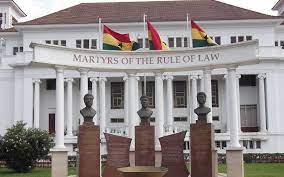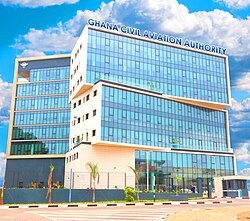Prof. Kwaku Azar Asare, a democracy and development fellow at CDD-Ghana has called for urgent reforms in Ghana’s legal education system, describing it as outdated and burdened by structural inefficiencies.
He highlighted that the current bifurcated model, which separates academic legal education from professional training, has created significant barriers to entry for aspiring lawyers.
According to Prof. Asare, this fragmented approach not only limits access to legal education but also stifles innovation, restricts competition, and fails to meet the growing demand for legal services in the country.
“The Ghana School of Law (GSL) remains the only professional training institution, creating a monopoly that limits access to legal education despite increasing demand.
“The regulatory framework, dominated by the General Legal Council (GLC), has led to excessive control, lack of innovation, and politically influenced decision-making”.
Prof. Kwaku Azar Asare
He further highlighted key issues within Ghana’s legal education system, pointing out structural inefficiencies caused by the centralized and monopolized control of legal education under the Ghana School of Law (GSL).
Prof. Asare criticized the outdated bifurcated model, which separates academic legal education from professional training, arguing that it creates unnecessary barriers to entry into the legal profession.

Additionally, he noted the limited capacity of the GSL to accommodate the growing number of law graduates, despite the proliferation of law faculties across the country, thereby restricting access for aspiring legal practitioners.
Prof. Asare also highlighted regulatory failures within the system, noting that the General Legal Council (GLC) exercises excessive control by acting as a regulator, educator, and examiner simultaneously.
This concentration of roles, he argued, results in regulatory capture, undermining impartiality and accountability.
He further pointed out the overlapping responsibilities of the Supreme Court, the GLC, and the Independent Examination Council (IEC).
Prof. Asare noted that this creates conflicts of interest and reduces transparency in the regulation and administration of legal education in Ghana. “Politically influenced decision-making with little accountability or stakeholder involvement”.
Reforms to Address Access, Equity, and Economic Barriers
Furthermore, Prof. Kwaku Azar Asare expressed concern over issues of access and equity within Ghana’s legal education system.
He highlighted the systemic exclusion of thousands of qualified LLB graduates due to restrictive entrance exams and quota systems.
Prof. Asare criticized the high failure rates, attributing them to arbitrary and non-transparent examination practices.
Additionally, he pointed out the economic barriers posed by exorbitant fees and the limited availability of alternative training institutions, which further restrict opportunities for aspiring legal professionals.

“[Prof. Asare proposed] Institutional Reform: Establish a new regulatory body, the Council for Legal Education and Practice (CLEP), to replace the GLC, focusing on; Accrediting law faculties [and] administering a standardized Bar exam open to all law graduates.
“Setting and enforcing legal education standards; Ensuring transparency and public participation in legal education policymaking”.
Prof. Kwaku Azar Asare
Prof. Asare also proposed a Modernized Legal Education Model aimed at streamlining and expanding access to legal training.
His proposal calls for the integration of academic and professional legal education into a unified program administered by accredited universities.
He further recommended ending the Ghana School of Law’s monopoly by establishing alternative institutions for professional legal training.
According to him, this will promote competition, accessibility, and diversity in legal education. “Replace the post-call pupillage system with practical clinical education integrated into university programs”.
Standardized Bar Exam to Improve Access, Professional Standards
Additionally, Prof. Asare proposed the introduction of a Standardized Bar Examination.
According to him, this system would involve the development of a national Bar exam focused on core legal principles, analytical skills, and professional ethics.
To enhance access and flexibility, he recommended that the exam be conducted twice a year, providing more opportunities for aspiring legal practitioners to qualify.
“Expected Impact of Reforms [include] Improved Access and Equity; Increased enrollment through expanded professional training options; Elimination of exclusionary practices such as quotas and opaque entrance exams; Affordable legal education through expanded capacity and competition among law faculties”.
Prof. Kwaku Azar Asare

Prof. Asare asserted that the proposed reforms would raise professional standards in Ghana’s legal education system.
Key improvements would include the introduction of a standardized Bar exam focused on core legal principles, legal reasoning, and professional ethics.
Practical training would be integrated into university curricula through initiatives such as legal clinics, moot courts, and trial practice programs.
The reforms would also eliminate political interference in legal education policymaking.
Additionally, he indicated that the reforms aim to strengthen the legal profession and the broader justice system.
This would result in a more competent and well-trained cohort of lawyers entering the profession, guided by a transparent regulatory framework with clear ethical and performance standards.
Ultimately, these measures are expected to enhance public confidence in both the legal education system and the overall administration of justice. “Introduce a legal education reform bill in the 9th Parliament embracing the above principles”.
Prof. Asare also advocated for active engagement with key stakeholders, including legal professionals, academic institutions, civil society organizations, and Parliament, to drive support for reform efforts.
He emphasized the need to raise public awareness and rally collective support for a transparent, inclusive, and forward-thinking legal education system in Ghana. “Pass bill by June 2025”
READ ALSO: GSE Financial Stocks Index Sees 24.64% Year-to-Date Growth







